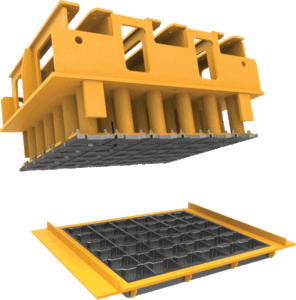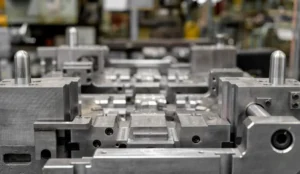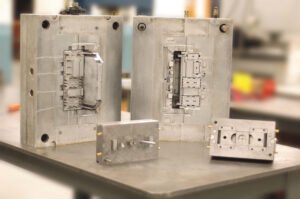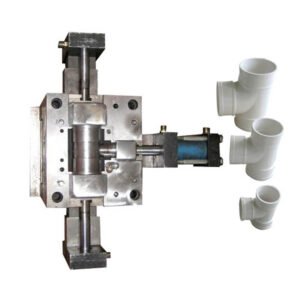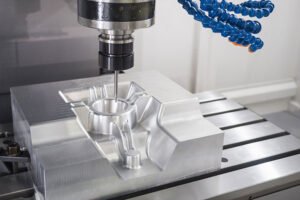In today’s fast-paced manufacturing landscape, mold technology plays a pivotal role in the production of high-quality, precise components across various industries. From automotive and electronics to medical devices and household appliances, the demand for sophisticated mold solutions has never been greater. This article delves into the evolution of mold technology and its impact on modern manufacturing.
A Brief History of Evolution of mold technology

The roots of mold technology can be traced back to ancient civilizations, where rudimentary molds were used to create pottery, metal objects, and other essential items. Over the centuries, mold-making techniques have evolved significantly. The industrial revolution marked a significant leap, introducing more advanced materials and methods, paving the way for the sophisticated mold technologies we use today.
Advancements in Mold Materials
Early molds were typically made from clay, plaster, or simple metals. Modern mold technology utilizes a wide range of materials, each selected for its specific properties. Fiberglass molds, for example, offer durability and flexibility, making them ideal for complex shapes and large-scale productions. Aluminum injection molds provide excellent heat conductivity and strength, essential for high-volume manufacturing processes.
Precision and Customization
One of the most significant advancements in mold technology is the ability to create highly precise and customized molds. Computer-Aided Design (CAD) and Computer-Aided Manufacturing (CAM) software have revolutionized the design process, allowing for intricate details and exact specifications. This precision is crucial in industries such as medical devices and electronics, where even the smallest deviation can impact functionality and safety.
Innovative Techniques
Several innovative techniques have emerged in mold technology, enhancing efficiency and product quality. Blow molding, for instance, is widely used in the production of hollow plastic components, such as bottles and containers. Injection molding, on the other hand, is ideal for creating complex plastic parts with high consistency and minimal waste. Thermoforming molds allow for the shaping of plastic sheets into durable, lightweight products used in various applications.
Environmental Considerations
As industries strive for sustainability, mold technology has adapted to incorporate environmentally friendly practices. The use of recyclable materials, energy-efficient manufacturing processes, and waste reduction strategies are becoming standard. These efforts not only minimize environmental impact but also reduce costs and improve overall efficiency.
Advancements in Injection Molding:
The mid-20th century marked a pivotal point in the evolution of mold technology with the development of injection molding. This process revolutionized manufacturing by allowing the production of intricate plastic parts with high precision and consistency. Injection molding involved injecting molten plastic into metal molds under high pressure, resulting in rapid cooling and solidification. This innovation significantly reduced production times and costs, making it a popular choice for industries such as automotive, electronics, and consumer goods.
Computer-Aided Design and Manufacturing:
The advent of computer-aided design (CAD) and computer-aided manufacturing (CAM) technologies further transformed mold technology. CAD software enabled engineers to create detailed and precise mold designs digitally, allowing for complex geometries and intricate patterns. CAM systems then translated these designs into machine instructions for CNC (computer numerical control) machines, which could precisely carve out molds from metal blocks. This integration of digital technology streamlined the mold-making process, improving accuracy and reducing lead times.
3D Printing and Additive Manufacturing:
In recent years, 3D printing and additive manufacturing have emerged as game-changers in mold technology. These techniques allow for the creation of molds layer by layer, using materials such as plastic, metal, and resin. 3D printing offers unparalleled design flexibility, enabling the production of complex and customized molds that were previously impossible to achieve. Additionally, additive manufacturing reduces material waste and speeds up prototyping, making it an ideal solution for rapid development and testing.
Smart Molds and Industry 4.0:
The latest advancements in mold technology are driven by the principles of Industry 4.0, which emphasizes automation, data exchange, and real-time monitoring. Smart molds equipped with sensors and IoT (Internet of Things) connectivity can collect and transmit data on temperature, pressure, and other parameters during the molding process. This data can be analyzed to optimize production, improve quality control, and reduce downtime. The integration of artificial intelligence and machine learning further enhances the capabilities of smart molds, enabling predictive maintenance and adaptive manufacturing processes.
The Future of Mold Technology
The future of mold technology looks promising, with continuous advancements on the horizon. Additive manufacturing, or 3D printing, is poised to transform the industry by enabling rapid prototyping and on-demand production of molds. This technology offers unprecedented flexibility and speed, allowing manufacturers to respond quickly to market demands and reduce lead times.
Conclusion
Mold technology has come a long way from its humble beginnings, evolving into a critical component of modern manufacturing. The advancements in materials, precision, innovative techniques, and environmental considerations have significantly enhanced the capabilities and efficiency of mold production. As technology continues to advance, the potential for further innovation in mold technology is limitless, promising exciting developments in the years to come.
At Mold Technology, we are proud to be at the forefront of this evolution, providing our clients with state-of-the-art mold solutions that drive their success. Whether you need customized fiberglass molds, injection molds, or thermoforming molds, our expertise and commitment to quality ensure that we meet your unique manufacturing needs. Contact us today to learn more about how we can support your production goals.

